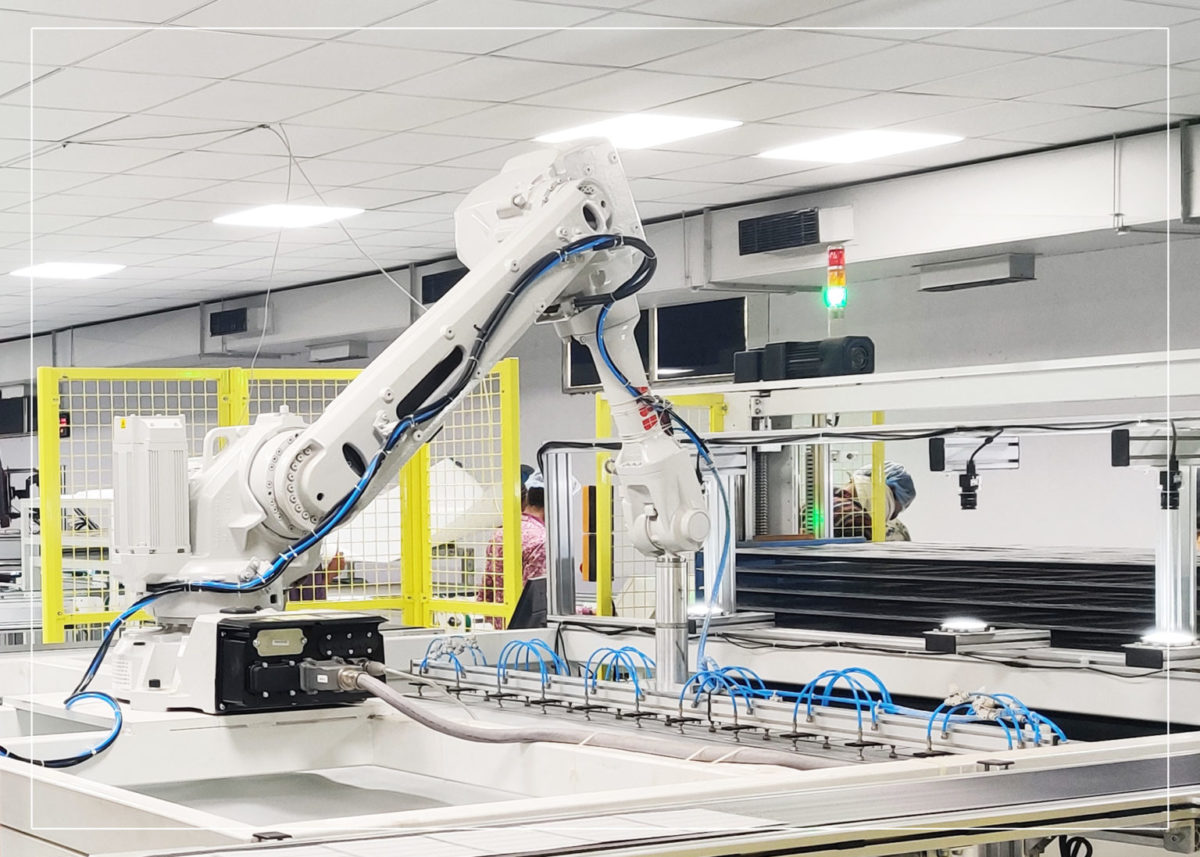From pv magazine India
Gujarat-based Rayzon Solar has announced that it is expanding its module production capacity to 1.5 GW with the addition of a new line.
The manufacturer will add a 1.2 GW mono PERC (passivated emitter and rear contact) line to its existing 300 MW state-of-the-art facility in Gujarat. The capacity additions will be finished by the end of December.
Rayzon Solar’s facility is equipped with an automated stringer and laminator. It has the capacity to produce 335 Wp polycrystalline panels and 400 Wp monocrystalline modules.
Kamlesh Gohil, international business development head at Rayzon Solar, told pv magazine that the new 1.2 GW production line will be equipped to produce mono PERC solar panels with wafer sizes up to 220 mm. It will have the capacity to produce 600 Wp panels with efficiency ratings of 21.4%.
“It will change the industry scenario and help to get the maximum output from a small area for big-scale PV projects,” said Gohil.
The new production line will be equipped with the latest technology, including a half-cut cell bussing system with a multi-busbar stringer from Wuxi Lead.
Rayzon Solar now joins the list of Indian manufacturers embracing mono PERC technology, in line with the global trend and rising domestic demand for such panels.
JMK’s quarterly solar reports show 2020 was the first year when shipments of high-efficiency monocrystalline PERC modules in India overtook multicrystalline modules.
This content is protected by copyright and may not be reused. If you want to cooperate with us and would like to reuse some of our content, please contact: editors@pv-magazine.com.




By submitting this form you agree to pv magazine using your data for the purposes of publishing your comment.
Your personal data will only be disclosed or otherwise transmitted to third parties for the purposes of spam filtering or if this is necessary for technical maintenance of the website. Any other transfer to third parties will not take place unless this is justified on the basis of applicable data protection regulations or if pv magazine is legally obliged to do so.
You may revoke this consent at any time with effect for the future, in which case your personal data will be deleted immediately. Otherwise, your data will be deleted if pv magazine has processed your request or the purpose of data storage is fulfilled.
Further information on data privacy can be found in our Data Protection Policy.